BBC Centenary: when was the BBC founded and when did it first broadcast - what are key dates in its history?
and live on Freeview channel 276
18 October 2022 marks 100 years since the BBC began. It’s the first broadcaster in the world to reach that milestone, with a host of centenary specials planned for the coming days to commemorate this significant anniversary.
You might be wondering, though – how was the BBC founded? Who was Lord Reith? What were its earliest make-or-break moments? How did the BBC begin, and how did it come to be the broadcaster it is today?
Advertisement
Hide AdAdvertisement
Hide AdHere’s everything you need to know about the early days of the BBC.
A face for radio
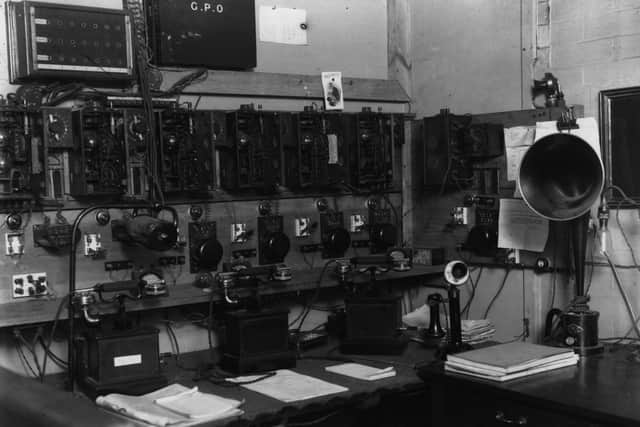

The first live public radio broadcast in the UK occurred in June 1920; it was a performance by the Australian soprano Nellie Melba. There was widespread public enthusiasm for radio in response, though considerably less so amongst anyone who’d be empowered to make them happen more regularly – there was a belief that public radio broadcasts might interfere with civil or military signals, and the general sense of unease around the Melba broadcast lead to the Post Office issuing a general ban public radio.
However, the popularity of the medium only grew, and the Post Office was soon inundated with applications from private citizens to start broadcasting personally. There was, it became clear, a need for some kind of official radio company.
Two’s company and three’s a Corporation
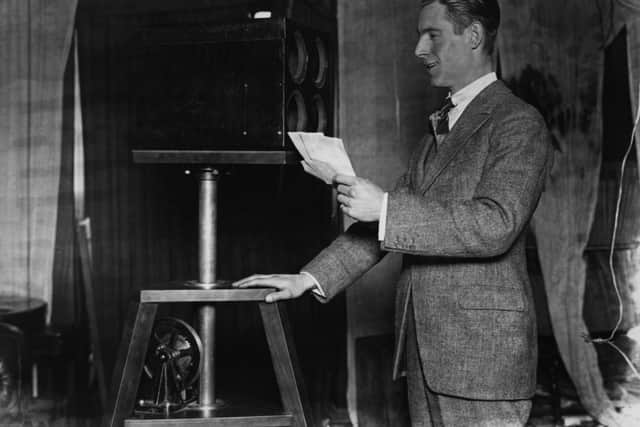

Technically speaking, October 2022 is the hundredth anniversary of the British Broadcasting Company, rather than the British Broadcasting Corporation. The Company was a private group, beholden to shareholders, maintained by the General Post Office (the state post office). The GPO had exclusive licensing rights to any mass communication – which, when it came to be invented, included radio broadcasts.
Advertisement
Hide AdAdvertisement
Hide AdThe purpose of the Company was to try and consolidate radio broadcasting. There was a feeling amongst senior post office staff that, when radio began to expand in the US, it had become quite chaotic – the hope was that a single license, issued to a single company, jointly owned by the major wireless manufacturers, would diminish that chaos. The Company carried some adverts and sponsored programmes, but made most of its money from the license fee – a tax on any of the wireless radio receivers sold by the manufacturers that owned the Company.
Still, the Company struggled to make much money, with people often buying unlicensed radio sets or simply making their own. Though the wireless manufacturers wanted to end their involvement in the company, there was still a general consensus that a broadcasting monopoly was worthwhile, and a hope amongst some senior staff in the Company to reposition the organisation as a public service rather than a commercial enterprise. The Crawford Committee, a review commissioned by the Post Office in 1925, recommended that the British Broadcasting Company be replaced by a new non-commercial, Crown-chartered organisation…
Strike!
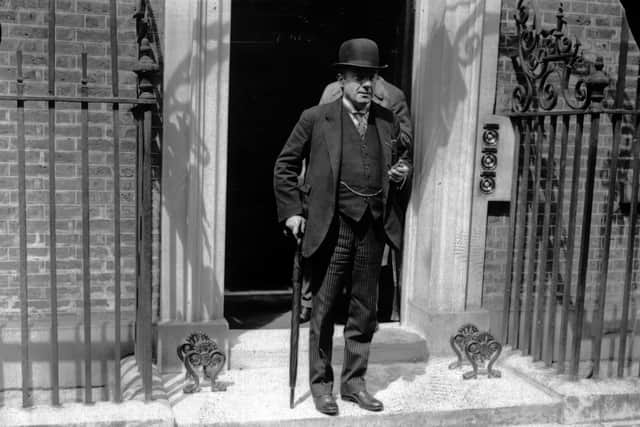

… a recommendation that was still under government consideration when the 1926 General Strike was called. Lasting from 4 May to 12 May, the 1926 General Strike was called by the Trade Union Congress in response to wage reductions and worsening conditions for miners across the UK. It was met with heavy opposition from the then-Conservative Government, in particular Prime Minister Stanley Baldwin and Chancellor of the Exchequer Winston Churchill.
The British Broadcasting Company – as it still was then – were placed in an unusual position by this strike. For one, the strike also included print workers, meaning newspapers couldn’t go to press – for the first time the Company was not just allowed to be but necessitated to become the primary source of news in the country. There was also, however, a nervousness amongst senior leadership at the Company, who were aware of the possibility that it was within Baldwin’s power to commandeer the company entirely.
Advertisement
Hide AdAdvertisement
Hide AdIn the end, that proved unnecessary: senior leadership at the Company were opposed to the strike themselves, and as a result Baldwin opted to trust their coverage. Though the BBC built a reputation for impartiality (and a much wider national audience) through its coverage of the strike, listeners were unaware of the BBC’s close relationship with the government; Baldwin broadcast from the home of the BBC’s general manager, for example, and broadcasts from the Labour Party were banned. Jean Seaton, the official BBC historian, has since pointed to the strike and the BBC’s response to it as the invention of “modern propaganda in its British form”.
With the view that the government could trust the BBC to pursue their political aims, Baldwin enacted the recommendations of the Crawford Committee – and the British Broadcasting Corporation was formed in 1927.
The Reith Stuff
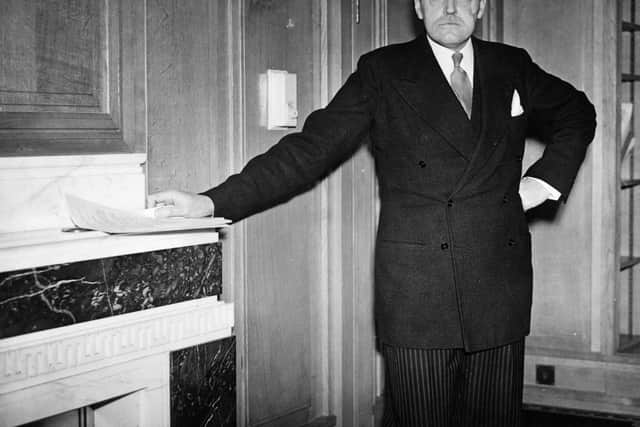

John Reith was appointed general manager of the British Broadcasting Company in 1922, and became the first Director General of the British Broadcasting Corporation in 1927. Reith, a 6ft 6in former engineer, was personally responsible for shaping the tone and style of the BBC’s early output – he was a Scottish Calvinist, with much of the content broadcast dictated by his own personal morality.
In the years since, Reith’s outlook has come to be known as “Reithian values”, and these are still at least nominally at the heart of the BBC today. In Reith’s view, the purpose of the BBC was to inform, educate, and entertain – the animating force behind public service broadcaster, and what should separate it from more capitalist private enterprise.
BBC Timeline
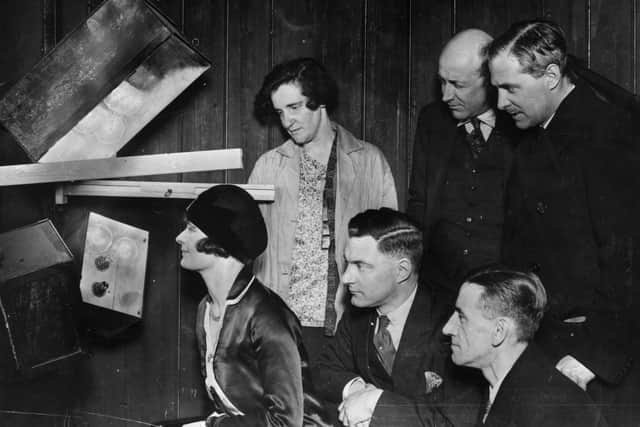

- 18 October 1922 – The British Broadcasting Company is formed.
- 14 November 1922 – The BBC makes its first radio broadcast from London.
- 13 February 1923 – The BBC makes its first radio broadcast from Cardiff.
- 14 July 1930 – The transmission The Man With the Flower in His Mouth, the first experimental television play.
- 24 April 1937 – The very first children’s television show, For the Children, is broadcast.
- 21 June 1937 – The BBC broadcasts television coverage of the Wimbledon Tennis Championships for the first time.
- 16 September 1937 – The BBC makes the world’s first live television broadcast of a football match, a specially arranged match between Arsenal and their reserve team.
- 1 September 1939 – Television broadcasts from the BBC are suspended due to WWII. The last programme on the BBC until 1946 is a Mickey Mouse cartoon; one of the first programmes broadcast when television services resumed in 1946 was the same Mickey Mouse cartoon.
- 20 November 1947 – The wedding of Princess Elizabeth and Philip Mountbatten, Duke of Edinburgh is televised by the BBC, estimated to have been watched by 400,000 viewers.
- 2 June 1953 – The coronation of Queen Elizabeth is broadcast live from Westminster Abbey.
- 22 September 1955 – ITV, a newly formed commercial rival to the BBC, begins broadcasting in London.
- 23 November 1963 – The first episode of Doctor Who airs.
- 20 April 1964 – BBC2 starts broadcasting. In December 1967, it becomes the first channel to broadcast a full service in colour.
- 15 November 1969 – BBC1 starts broadcasting in colour.
Comment Guidelines
National World encourages reader discussion on our stories. User feedback, insights and back-and-forth exchanges add a rich layer of context to reporting. Please review our Community Guidelines before commenting.
